100 Greatest Britons facts for kids
Great Britons was a television series shown by the BBC in 2002. It was based on a public poll that asked people in Britain who they thought were the greatest Britons in history. The series featured individual programs about the top ten people. Viewers had more chances to vote after each program. The show ended with a debate and a final ranking of the top ten. Many living people were on the longer list of 100, but all of the top ten were historical figures who had passed away.
The Poll and Its Results
The poll included many famous people. Some nominees were Guy Fawkes, who tried to blow up the Parliament of England; Oliver Cromwell, who helped create a republican government in Britain; and Richard III, a king whose story is still debated by historians. Other notable figures included James Connolly, an Irish leader who fought for independence and social change; and Thomas Paine, who wrote important ideas about government. The list also featured entertainers like Michael Crawford and John Lennon.
The poll included people from different backgrounds. For example, Bono and Bob Geldof, who are famous musicians and humanitarians from Ireland, were also on the list. Most of the top 20 people were of English origin. Elizabeth I came from a Welsh royal family. Sir Ernest Shackleton and Arthur Wellesley, 1st Duke of Wellington, were Anglo-Irish, from what is now the Republic of Ireland, when it was part of the United Kingdom. Alexander Fleming, who discovered penicillin, was Scottish.
Thirteen of the top 100 were women. Sixty people on the list had lived in the 20th century. The highest-ranked living person was Margaret Thatcher, who was 16th. Interestingly, Ringo Starr was the only member of The Beatles not on the list. For a while, Isambard Kingdom Brunel was at the top of the poll, thanks to students from Brunel University London who supported him. However, in the last week of voting, Winston Churchill received many votes and moved into first place.
The Final List
The BBC's original ranked list is no longer on their website. However, other sources have kept the full list in order.
There was a small question about whether Richard Burton at number 96 was the famous actor or the explorer. A BBC statement confirmed it was the actor.
Top 10 Great Britons
| Rank | Name | What they are known for | Advocate | Ref. | |
|---|---|---|---|---|---|
| 1 | Sir Winston Churchill (1874–1965) |
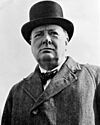 |
He was the Prime Minister from 1940–1945 and again from 1951–1955. He led Britain during World War II, when the country faced a planned invasion. He was also important in politics after the war. He won the Nobel Prize in Literature in 1953. | Mo Mowlam, British politician. | |
| 2 | Isambard Kingdom Brunel (1806–1859) |
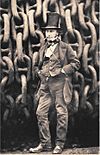 |
A brilliant engineer who designed the Great Western Railway, the Clifton Suspension Bridge, and famous ships like the SS Great Britain. He also created many tunnels and bridges. He was a key figure in the Industrial Revolution and changed public transport and engineering. | Jeremy Clarkson, TV presenter. | |
| 3 | Diana, Princess of Wales (1961–1997) |
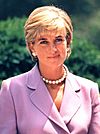 |
She was the first wife of Charles III and the mother of William, Prince of Wales, and Prince Harry, Duke of Sussex. People admired her for her charity work and her fashion sense. | Rosie Boycott, journalist and activist. | |
| 4 | Charles Darwin (1809–1882) |
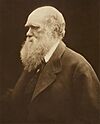 |
A famous biologist, geologist, and naturalist. He developed the theory of evolution through natural selection. He wrote the very important book On the Origin of Species. | Andrew Marr, journalist and TV presenter. | |
| 5 | William Shakespeare (1564–1616) |
 |
A world-famous poet and playwright. He wrote plays like Hamlet, Macbeth, and Romeo and Juliet. Many consider him the greatest writer in the English language. His plays are performed more than any other playwright's. His work is loved for its deep understanding of people and its rich language. | Fiona Shaw, actress and director. | |
| 6 | Sir Isaac Newton (1642–1727) |
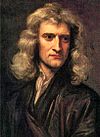 |
A brilliant physicist, mathematician, astronomer, and philosopher. He discovered universal gravitation and the laws of classical mechanics and motion. His book Principia is one of the most important science books ever written. | Tristram Hunt, historian. | |
| 7 | Elizabeth I (1533–1603) |
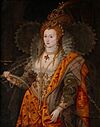 |
She was the Queen of England and Ireland from 1558 to 1603. Her reign brought peace and stability. She led England to victory against the Spanish Armada. Her time as queen is known as the Elizabethan era. | Michael Portillo, journalist and politician. | |
| 8 | John Lennon (1940–1980) |
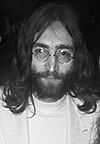 |
A famous pop/rock singer-songwriter, musician, and member of The Beatles. He was known for his unique music, his free spirit, and his work for peace. | Alan Davies, comedian and actor. | |
| 9 | Horatio Nelson (1758–1805) |
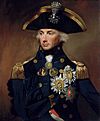 |
A brave naval commander in the Royal Navy. He was famous for his service during the Napoleonic Wars. His victory at the Battle of Trafalgar was very important in stopping a planned invasion of the United Kingdom. | Lucy Moore, historian. | |
| 10 | Oliver Cromwell (1599–1658) |
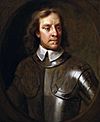 |
He was the first Lord Protector of the Commonwealth of England, Scotland and Ireland from 1653 to 1658. He led the army during the English Civil Wars against King Charles I. | Richard Holmes, military historian. | |
See also
 In Spanish: 100 Greatest Britons para niños
In Spanish: 100 Greatest Britons para niños
- Greatest Britons spin-offs
- Historical rankings of prime ministers of the United Kingdom

